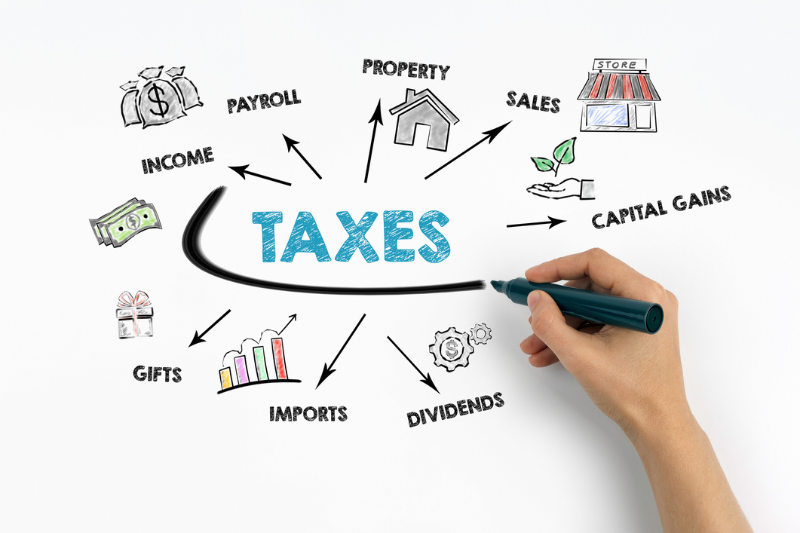-
By valero
- In Uncategorized
After setting up your company and opening a business bank account in the UK, it is time to find out what taxes do companies must pay in the UK.

In the UK, as in any other country in the world, companies are subject to a series of tax obligations that we will try to cover in this article. Check out all our writings on starting a business in the UK.
Corporation Tax
There is no tax more important than another, as you have to pay all of them. Maybe Corporation Tax is one of the main taxes. It is levied on the profits of a company in the UK during its tax year.
The UK has simplified its system of tax collection, dispensing with the bracket system. Basically, companies with profits above £250,000 pay a standard rate of 25%. Those with profits below £50,000 pay a rate of 19%. Those in between are taxed at a progressive effective rate.
It doesn’t matter whether your company is based in the UK or abroad. It is a compulsory rate for any company registered and operating in the UK.
VAT
VAT works in a similar way as in other countries. There is an imposition of a standard rate of 20% on the consumption of goods and services.
Some products, such as basic foodstuffs or printed books, are subject to reduced rates of 5% or even excluded from VAT.
If a company’s annual turnover exceeds £90,000, registration with the VAT system is mandatory. If the turnover is lower, registration is also voluntary.
Property related taxes
There are a number of taxes related to the ownership and sale and purchase of real estate in the UK. For example, the Annual Tax on Enveloped Dwellings (ATED, for expensive properties), Stamp Duty Lamp Tax (SDLT) in England and Northern Ireland, the Land and Buildings Transaction Tax in Scotland or the Land Transaction Tax in Wales.
Salaries
If you have employees, you have to keep up managing with PAYE (Pay As You Earn), a system that consists of withholding income tax and National Insurance Contributions from the employee’s salary.
In this case, the company withholds the corresponding amount from each pay cheque and pays it to His Majesty’s Revenue and Customs (HMRC). It is important to note that this is not a tax per se. It is an administrative obligation of the company as important as any other tax obligation.
Other taxes you need to pay in the UK
In relation to your business activity, there are other taxes you need to consider. For example, Digital Services Tax (DST), if your company is in social media for different purposes; Capital Gain Tax, if the company sells assets and makes a profit; taxes on dividends distributed among partners; or taxes on waste collection and treatment.

General recommendations
The General Anti-Abuse Rule (GAAR), which prevents tax evasion by taxpayers, regulates all the tax obligations referred above.
It is highly advisable to hire an accountant to keep your tax obligations up to date. There are software apps that help enormously in registering economic activity and knowing what taxes to pay.
The United Kingdom has also opted in recent years to promote the electronic management of all these procedures through Making Tax Digital. It seeks to make the tax payment process more efficient and simpler.
In summary
The taxes that companies pay in the UK are subject to the specifics of their sector and the UK territory where they are located. We strongly recommend you to be as up to date as possible on what taxes do companies must pay in the UK. Do not hesitate to hire an accountant either to accompany you on this tedious path of tax obligations.